
Vietnam ready to deepen comprehensive cooperation with the US
19:05 | 23/03/2025 08:30 | 15/02/2026News and Events
Bridging Vietnamese products and consumers
On October 29, at Tran Nhan Tong pedestrian street in Hanoi, the Center for Innovation and Industrial Promotion under the Department of Innovation, Green Transition and Industrial Promotion (the Ministry of Industry and Trade - MoIT) organized a program to showcase and promote products of rural industrial establishments as part of the 2025 national industrial promotion plan.
According to Nguyen Thi Lam Giang, Director of the Department of Innovation, Green Transition and Industrial Promotion, as Vietnam enters a new phase of economic development, green transition and innovation have become urgent requirements. Supporting rural industrial establishments to enhance production capacity, expand market reach, and strengthen value chain linkages is therefore a key task of the national industrial promotion program.
She noted that this year’s event is held in response to the campaign “Vietnamese people prioritize using Vietnamese goods” and in line with the Prime Minister’s Directive No.18/CT-TTg on promoting trade both domestically and internationally. The event features 50 standard booths displaying signature local products, from handicrafts and processed agro-forestry goods to essential consumer items.
“This program is not merely a display of products. It serves as a platform connecting producers, investors, distributors, and promotion agencies to form sustainable value chains, bringing Vietnamese products closer to consumers,” Nguyen Thi Lam Giang said.
According to the MoIT representative, industrial promotion is no longer limited to supporting machinery, technology, or vocational training but has expanded to market promotion and competitiveness enhancement for rural enterprises and cooperatives. “No matter how good the product is, if it fails to reach consumers, the creativity and efforts of rural workers cannot be fully recognized,” she emphasized.
Enterprises embrace industrial promotion programs
On October 23, a similar event took place in the Den Lu area, Hanoi, featuring 50 booths showcasing signature products from provinces and cities nationwide, attracting strong interest from local consumers. At the fair, enterprises, cooperatives and rural production facilities actively joined and highly appreciated the program’s effectiveness.
Nguyen Chi Tuan, Director of the Dong Mo Agricultural Service and Production Cooperative (Lang Son), shared: “We brought to the fair our off-season custard apples, which are more carefully cultivated than in-season crops, with better flavor and higher economic value, ranging from VND 50,000 to 80,000 per kilogram. Participating in the fair helps us promote our products to Hanoian consumers and connect with potential distributors.”
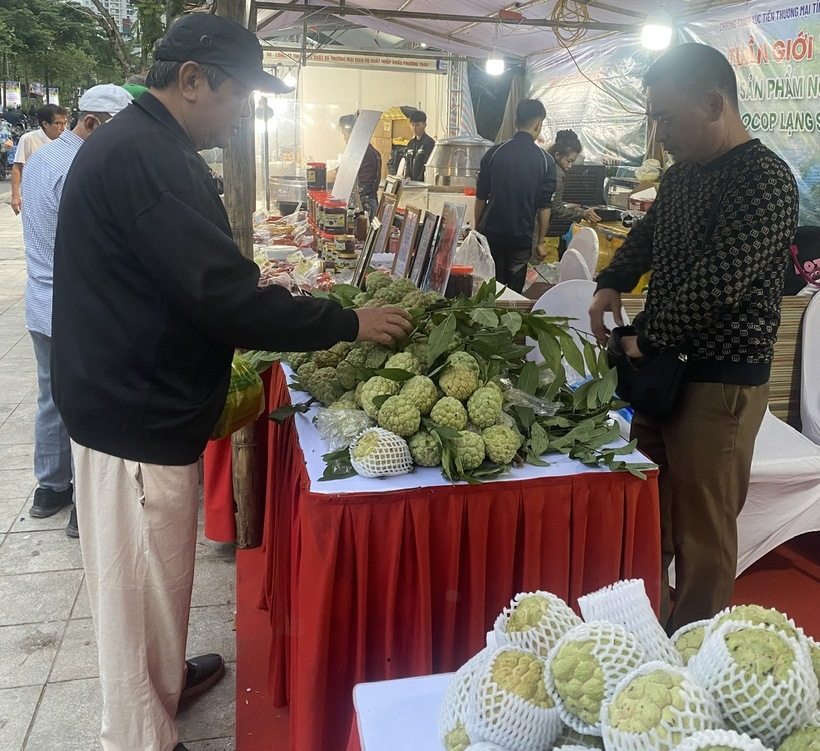
Off-season custard apples by the Dong Mo Agricultural Cooperative, Lang Son.
In addition to fresh fruit, Lang Son booths displayed a variety of processed goods to enhance product value. Nguyen Chi Tuan said some local enterprises had creatively developed new items such as khau xi na, a sticky rice cake infused with ripe custard apple, blending traditional flavors with modern processing techniques.
“Products like khau xi na and khau xi que sell very well. They’re the result of creative ideas combined with processing technology, ensuring farmers no longer worry about oversupply during good harvests,” Nguyen Chi Tuan added.
Also from Lang Son, Tran Thi Thu Lan, Director of the Ban Quyen Agroforestry Service and Production Cooperative (Trang Dinh commune), said her cooperative specializes in star anise flower tea, launched in 2023.
“Our tea is made entirely from natural mountain ingredients, with no artificial flavoring. Though newly introduced, it has been promoted by the MoIT at international events in Italy, Japan, and China, receiving positive feedback,” Tran Thi Thu Lan shared.
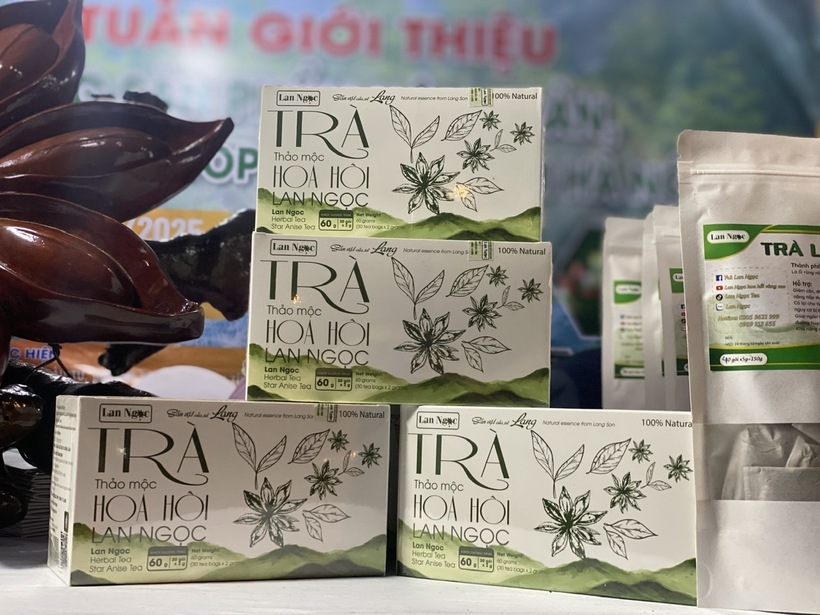
Star anise flower tea by the Ban Quyen Agroforestry Cooperative (Trang Dinh commune).
She noted that since joining the industrial promotion program, the cooperative has undergone remarkable changes: “The living standards of ethnic minorities (Tay and Nung) have improved, and value-added processed products now generate three times more income than raw materials. Previously, unprocessed star anise was hard to sell at unstable prices. Now, a kilogram of star anise tea fetches triple the value. It’s a sustainable path for stable livelihoods.”
In Thai Nguyen, Pham Ngoc Tan, a representative of the Thuy Thuat Tea Cooperative, confirmed the tangible benefits of trade promotion activities: “Participating in these programs allows us to introduce our products directly to consumers. When customers can sample the tea, they gain trust and often return to place orders. We now receive regular orders from Hanoi and other provinces.”
The cooperative currently maintains 5 hectares of organic tea, producing around 75 tons of fresh tea leaves annually, with three signature lines: Loc Dinh Tea, Tom Non Tea, and Nhat Tam Tea. Each line follows strict organic standards and is favored for its pure taste and nutritional value.
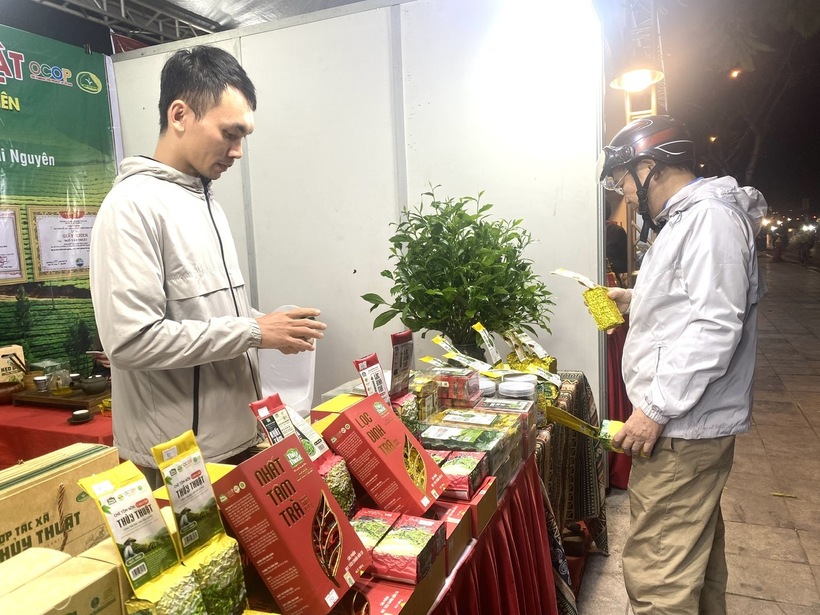
Consumers exploring tea products by the Thuy Thuat Tea Cooperative, Thai Nguyen.
“Competition in the tea industry is intense, but we remain committed to three principles: quality first, reasonable pricing, and the best service. Our slogan ‘Clean tea for good health’ guides our brand identity,” Pham Ngoc Tan shared. He added that thanks to these promotion events, the cooperative gained valuable learning and networking opportunities, and is planning to expand online sales channels in the near future.
Feedback gathered from the fairs shows that localities and enterprises highly value the industrial promotion program, which not only supports technology and training but also serves as a catalyst for creative startups, green transition, and sustainable rural development.
According to Giang, the 2021 - 2025 national industrial promotion program has shifted its focus from individual support to regional connectivity and value chain development, helping rural enterprises not only “make products” but also “bring products to the market.”
“In the next phase, the MoIT will continue to assist rural industrial establishments in applying science and technology, building brands, enhancing competitiveness, and boosting product consumption through the national trade promotion system. The goal is for rural products to secure a strong foothold domestically and reach international markets,” she affirmed.
With clear direction from the MoIT and proactive engagement from localities, Vietnam’s rural industries are poised to enter a new stage of growth, where trade promotion, innovation, and green transition become key pillars for expanding market access and elevating the value of Vietnamese goods.

19:05 | 23/03/2025 08:30 | 15/02/2026News and Events

19:05 | 23/03/2025 08:25 | 15/02/2026News and Events
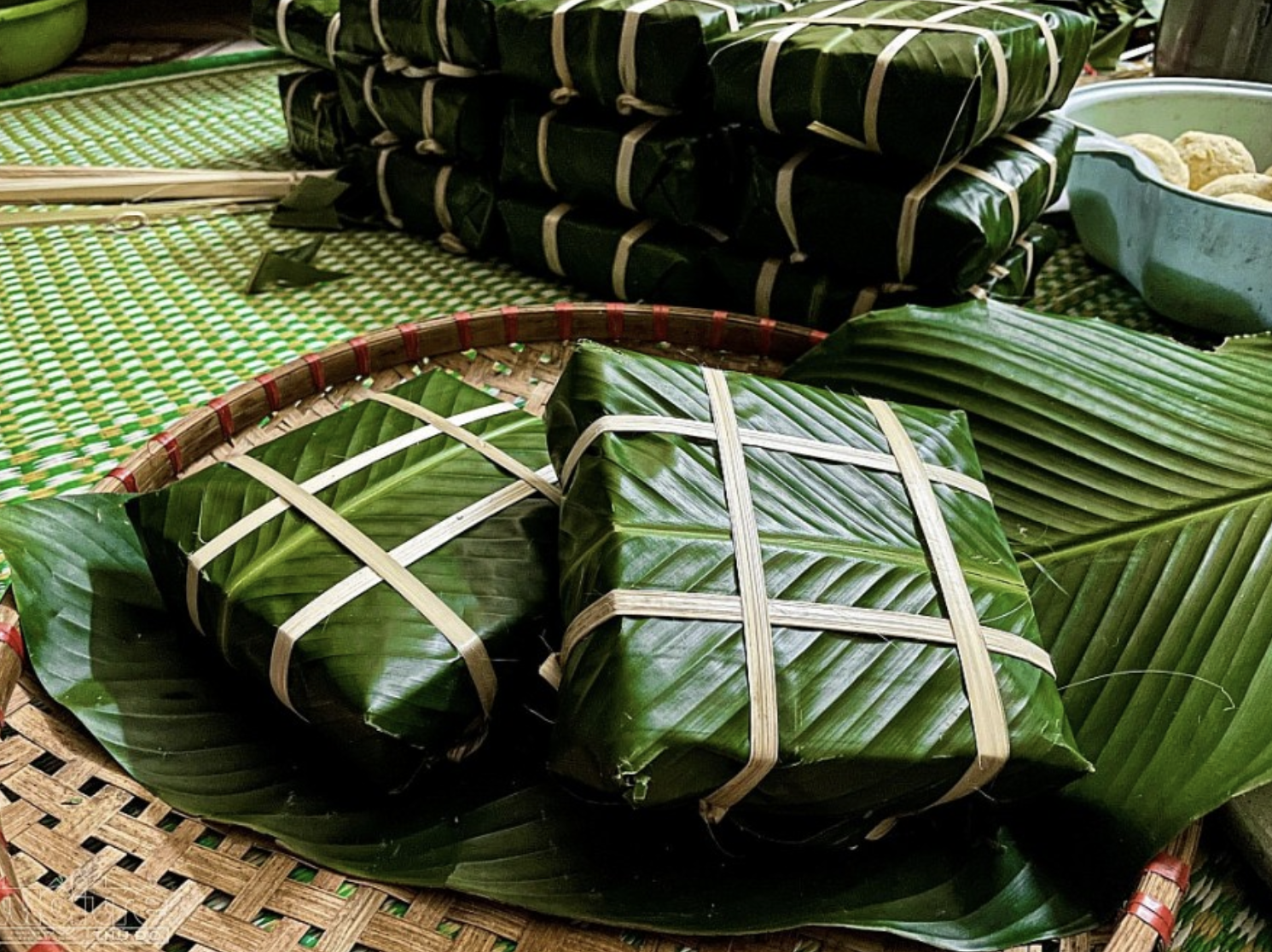
19:05 | 23/03/2025 16:44 | 14/02/2026Tourism
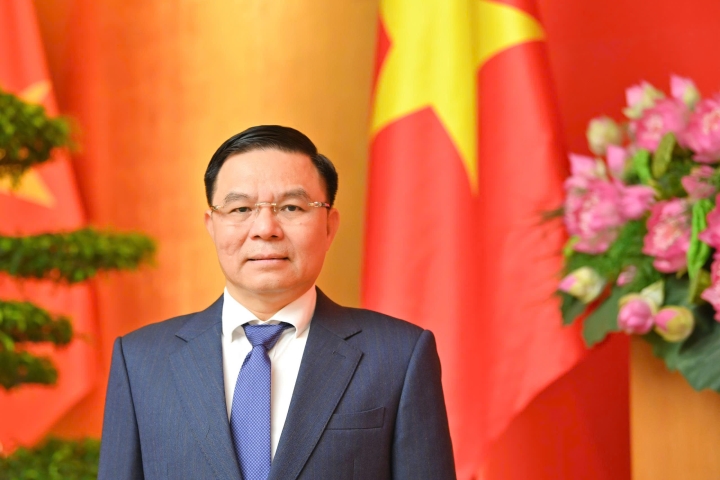
19:05 | 23/03/2025 16:33 | 14/02/2026Home Page
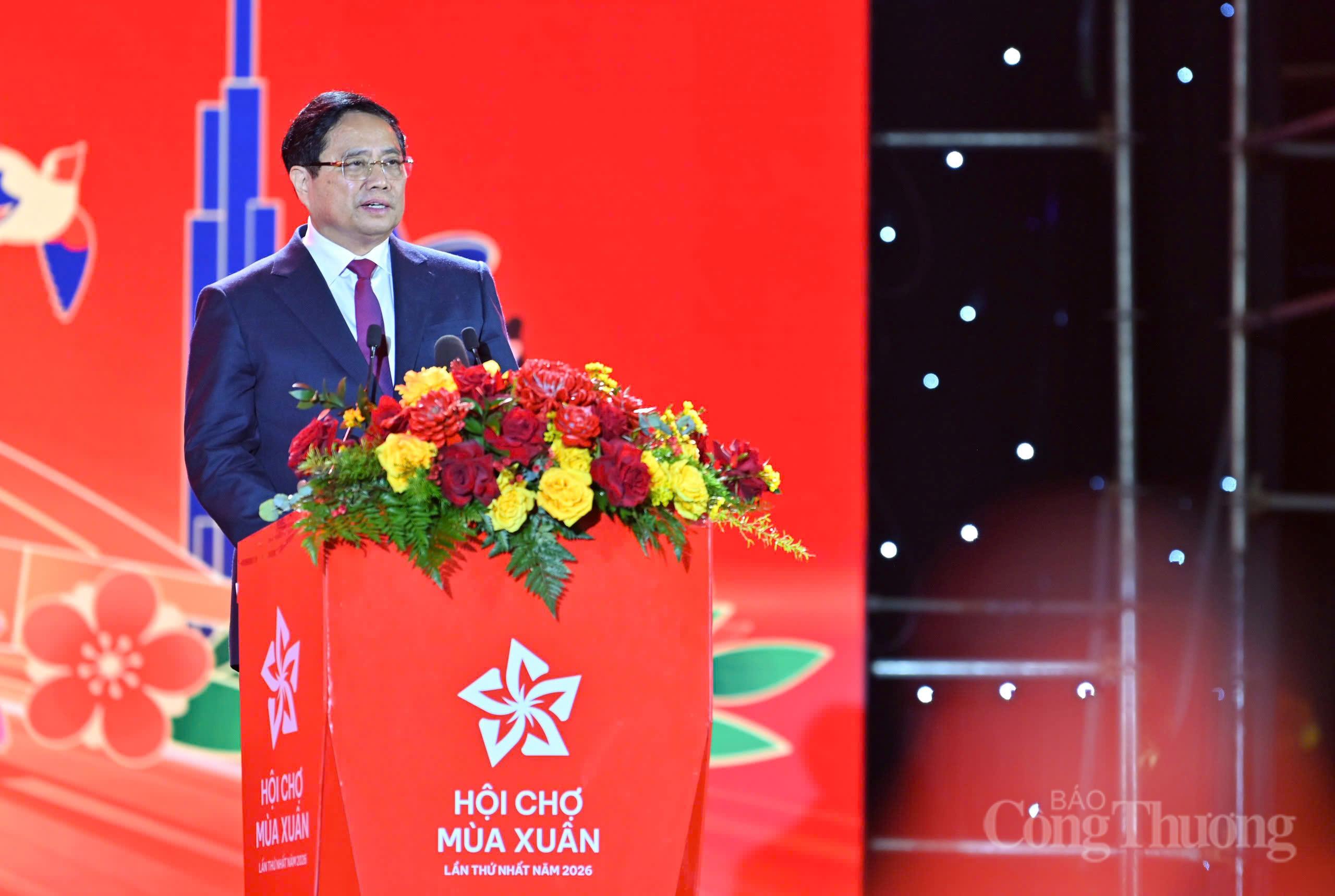
19:05 | 23/03/2025 16:32 | 14/02/2026Trade